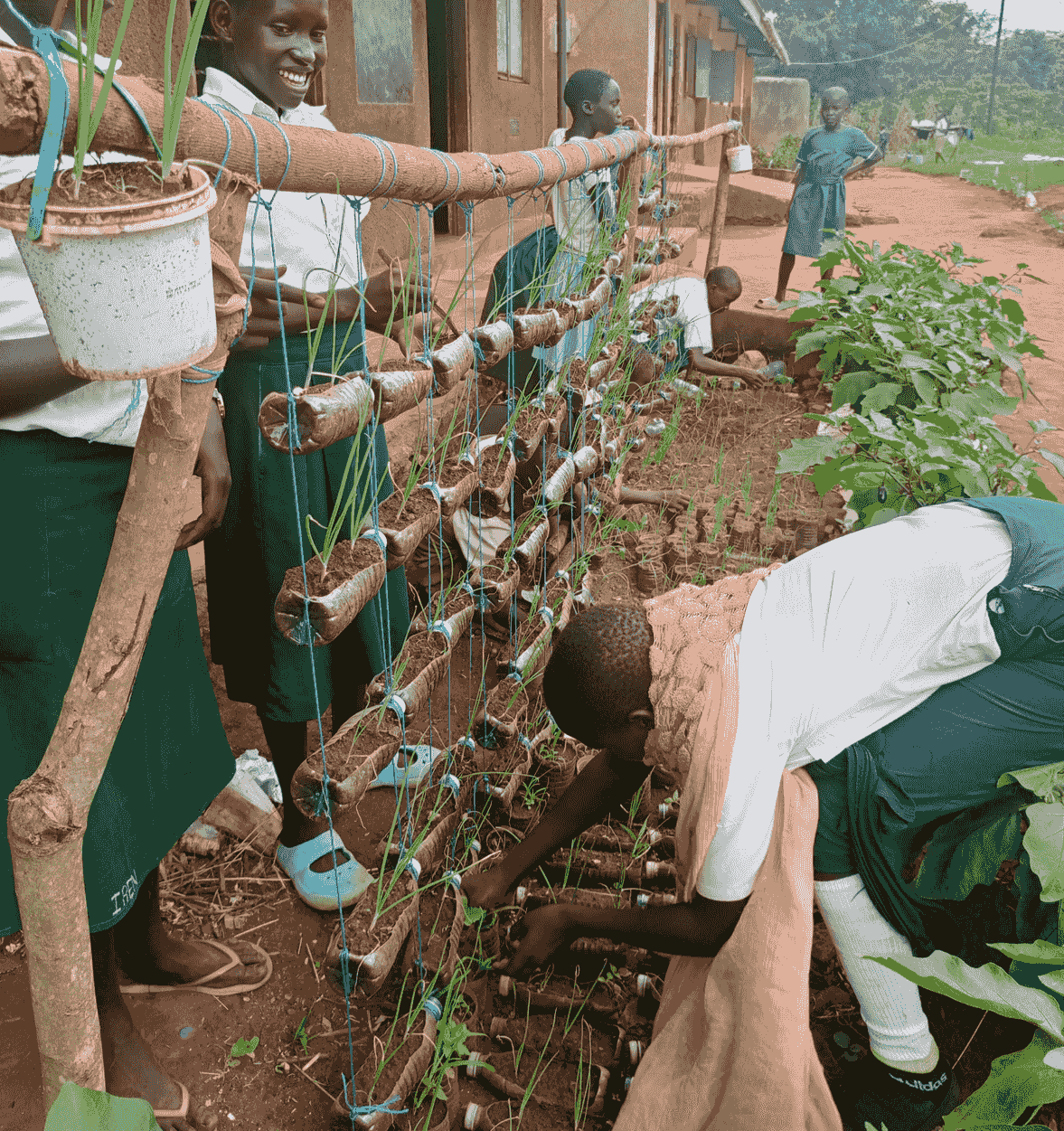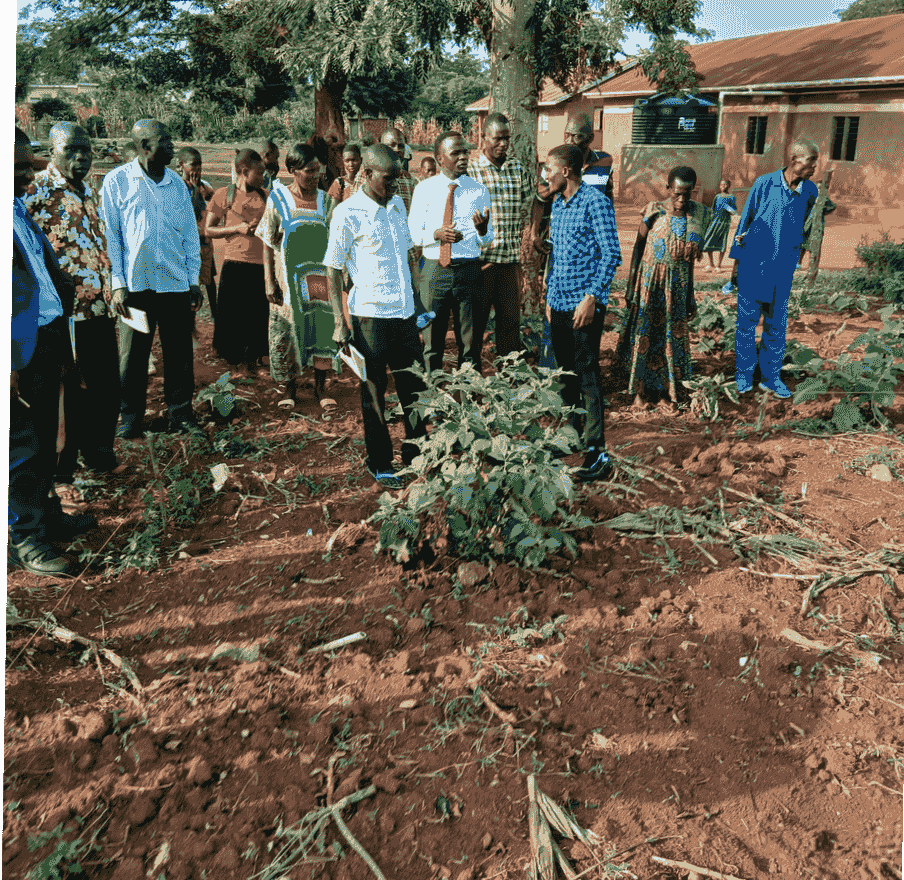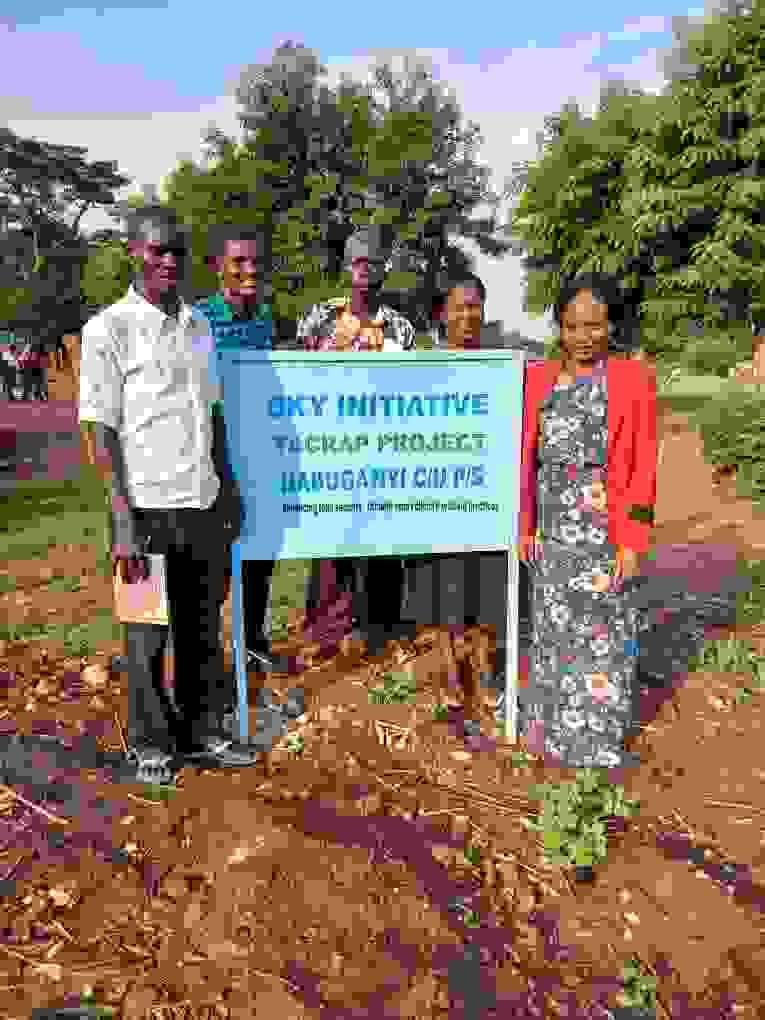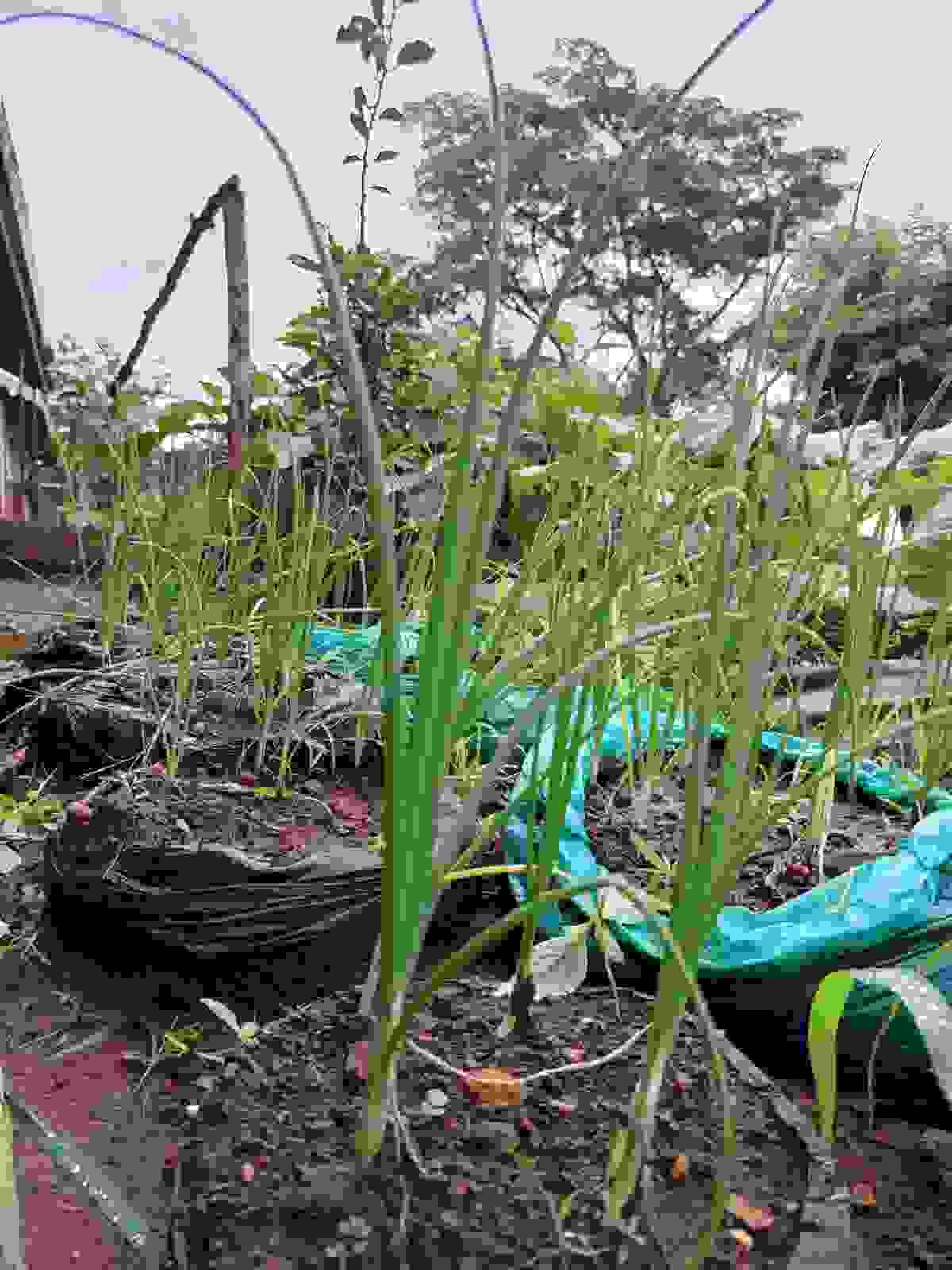
YACRAP - Youth Action to Climate Resilient Agricultural Practices.
Empowering young people through climate education, climate adaptive farming practices and solid waste management

Program Objective
1. Food Security
Promote Smart Gardening practices by training participants to grow food crops using climate-resilient methods.
2. Climate Education
Educate school and community members on climate change, emphasizing actionable steps and effective adaptation strategies.
3. Waste Management
Providing practical innovations for reducing, reusing, recycling and disposing waste for environmental protection.
4.Academic Performance
Food security at school enhances concentration level of learners in classes and gives them better ability to read and excel in their examinations.
IMPACT HIGHLIGHT

800+
School Children and Community Members
Obtaining skills and knowledge of sustainable smart and climate resilient agricultural practices

7,000+
People reached
Through climate change action campaigns and sustainable practices.

2
Smart Demonstration Centers Established
In two schools accessible by school children and community members from over 10 villages

500+ kG
Waste
Collected, recylced and reused in the waste sustainable management practices form smart agriculture
SOLID WASTE MANAGEMENT
Using non-biodegradable wastes in Smart Agricultural practices as materials for planting and irrigation system
Climate Change Action
School tree planting program through instituted school club
Action against Child Hunger in School
Children sharing vegetable food as products from their smart climate adaptive farming garden

“I am happy because i go back home with food every week to cook with my mother, I love school time and this project time”
— Sebbi Nuhu
P.5 Pupil, Kayunga

“I can make good planting use of plastic bottles for growing crops, because we do not have big land at home, so I dig within our coumpound”
— Likiya Jackline
Project Participant

“We give out food items produced from our Demo-Smart Garden to over 27 learners every week to go cook in their homes”
— Willy Canwat
Project Team









